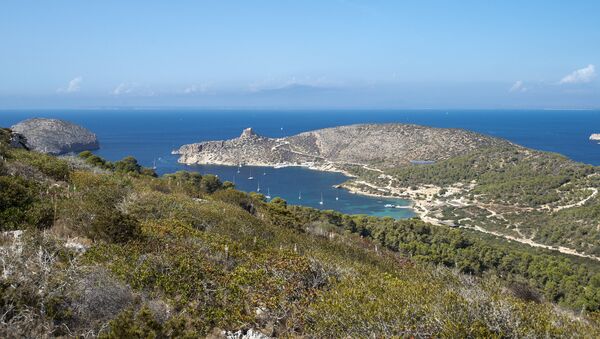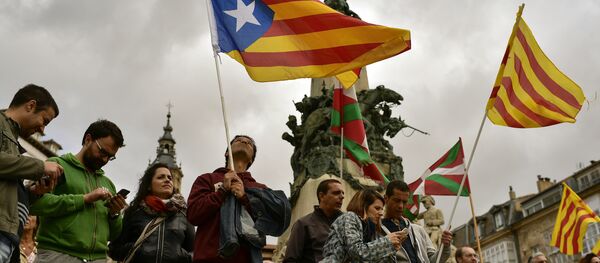The MÉS per Mallorca coalition in the Balearic Islands wants a referendum on the region’s independence in 2030.
The Socialist Party of the Balearic Islands (PSIB), the regional branch of the Spanish Socialist Workers’ Party (PSOE), has approved a roadmap that will be discussed at a party meeting on October 28. The document clarifies that the main goal is to establish the Republic of Majorca, with the following declaration of independence of the other islands of the archipelago.
Alarming Tendencies
In an interview with Sputnik Mundo, Armando Fernández Steinko, a professor of sociology at the Complutence University of Madrid (UCM), spoke against independence efforts in Spain, warning that they risk triggering a trend toward disintegration.
Speaking further, Fernández Steinko suggested that the push for regional independence in Spain also risks boosting similar tendencies in other European countries.
"They’re playing with fire. Opening a source of instability on the Iberian Peninsula means the same for the rest of Europe. But no one will gain from this, even eurosceptics… Such a fire is very easy to ignite, but very difficult to put out," the professor said.
At the same time, in defense of its independence attempts, the MÉS per Mallorca coalition insists that the current constitutional system of autonomies has outlived its usefulness. Supporters of the idea say that the Balearic Islands are economically and politically infringed upon by the Spanish government, the argument exploited by Catalan independence supporters in recent years.
Coalition Lacks Public Support
Speaking with Sputnik Mundo, member of the coalition David Abril said that in particular the Spanish government ignores the specific economic situation in the Balearic Islands.
"The region is a popular tourist destination. Its population is over one million people. It has high living standards but at the same time everything is more expensive. Madrid ignores the situation and gives no special conditions to the autonomy. As a result, the regional budget has a deficit," Abril said.
The coalition was formed three years ago primarily on the basis of leftist nationalist forces, but is now already present in the majority of regional administrative institutions.
Catalans are set to voice their opinion on the region's sovereignty on Sunday, October 1. Catalonia's campaign to break away from Spain has been gaining momentum since 2010, when the country's economy was damaged during the financial crisis.
The region already held a similar poll in November 2014. Then the residents were asked two questions: "Do you want Catalonia to become a State?" and "Do you want this State to be independent?" The second question could only be answered by those who had answered Yes to the first one. Some 80 percent of the voters then supported the Yes–Yes option, but the referendum was not politically binding.





